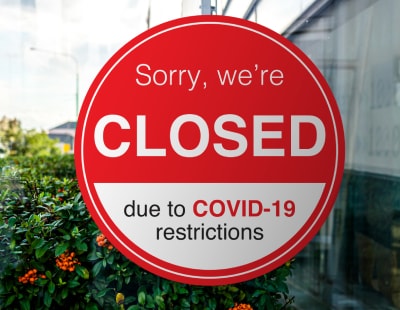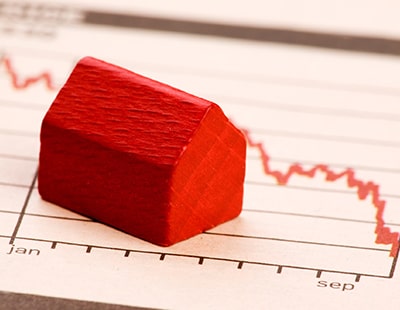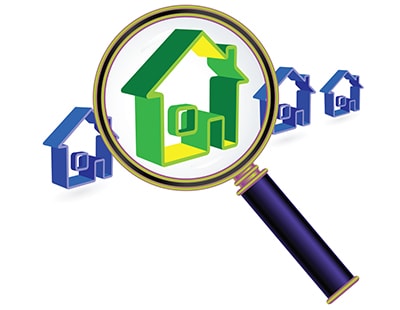The fact that buyer demand is now running even higher, and coming off the back of an exceptionally busy second half of 2020, indicates how many homeowners are still using lockdown as a spur to reassess how and where they are living.
Some of this activity may well be due to buyers moving quickly to try and take advantage of the stamp duty holiday by completing their sale before March 31. Yet with the backlog in conveyancing and searches at the moment, as the weeks go on, the likelihood of beating the deadline is starting to decline. (Should there be an extension to the holiday? Let me come back to that.)
The rebound in buyer demand is broadly even across all regions and countries, showing that a cohort of homeowners in all areas are deciding that with new commuting patterns, changing working trends and potentially more time being spent in their homes throughout the year, they would like to live somewhere else, or in a larger home.
The ‘search for space’ has been a key trend in the market over the last year - resulting in the price of houses rising twice as quickly as the price of flats, as examined in more detail in the November House Price Index.
With a global pandemic and high levels of economic uncertainty, some may be surprised at the activity levels and buoyant trends in the housing market. But the ‘search for space’ is key here. We are seeing this trend among older homeowners who are more financially secure and who have more equity in their property.
The recent rise in house prices means that they have even more security around selling their property and moving elsewhere. For some moving from London, they will be getting more bricks and mortar for the same price or less.
The demand for homes is not being matched by supply, however. The current lockdown restrictions have created some caution among vendors about opening their homes for viewings, and we have seen new listings fall by 12%.

The one region where supply is climbing is London - and it is flats rather than houses that account for much of this increase. There may be several factors at play here, including flat owners looking for more space trading up and buy-to-let landlords selling investment properties amid falling rents and the potentially higher levels of Capital Gains Tax (CGT) - a policy that is reportedly being discussed in the Treasury.
While we expect the supply of homes for sale across the country to jump back sharply once the lockdown restrictions ease back to tiers, or amid more positive news on case numbers, the current mismatch between supply and demand will continue to put upwards pressure on prices.
Our latest data shows that the annual growth in prices was at 4.3% in December - the highest level of growth since April 2017.
In the North East, the North West and Yorkshire and the Humber, house price growth is now at a 10-year high spurred higher by the affordability levels in these regions.

So, to the topic of stamp duty… to extend or not?
As the data tells us clearly, the housing market has been a bright spot in the economy for the Chancellor. While Mr Sunak will be keen to start bringing in larger tax receipts from this market, the case is mounting for a short extension to the stamp duty holiday so those who initially started the buying process in the expectation that they would benefit, will be able to.
It should be announced late, so as not to draw more people purely motivated by the stamp duty holiday into the market.
Will the market grind to a halt without the extension? No. There will be a short period of lower sales as the market adjusts to the activity that the stamp duty holiday pushed forward into Q1, but overall we expect activity to pick up again through Q2 and Q3, although prices will start to ease throughout the course of the year.
For our full forecasts, and all our latest market insights, visit Zoopla Advantage.
*Gráinne Gilmore is Head of Research at Zoopla


























Join the conversation
Jump to latest comment and add your reply
Ever since October's Report from Zoopla saying that the market would only fall 6% in 2020, yet the actual outcome was a fall of 11% and in the report released on 21 December 20, house price index price increase as 3.9% yet days after House price index showed a 7.6% growth rate is there be any credibility in the Zoopla report.
Why publish 4.3% growth figures for December when the provisional figures have already been released showing 6.5%??
Predictions as accurate as a weather forecast!
Remember last January. In the graph shown in the latest report, sales are rising to end on 20.000 for the month. Taken on average year 100,000 sales are completed each month (2019 1.176M), that level of sales is required to achieve the year end target. What I do remember is commentary saying how busy the market was but when the figures are examined after lockdown, it took over 6 months to complete the alleged 375,000 sales of pent up demand. In a "Normal" market 600,000 sales would have been completed anyway. There were no additional sales. Monthly level of completions did not exceed any monthly total of completions 2019 until November 20
So the 8% increase in house sales (or more accurately sales agreed but not completed) equates at best to 1600 units divided by the 53,000 estate agents and auctioneers in business in 2020. Hold that champagne!
Why the Chancellor should see the housing market as bright spot when losing much needed tax revenue to a market that performance was the lowest since 2012 is anyone's guess. His thoughts are probably, the home owing population is happy because their property has risen in price against a background of heavy price falls forecast at the start of the lockdown. Estate Agency is one of the heaviest industries for furloughed staff. Nothing but sunshine for Mr Sunak.
Please login to comment